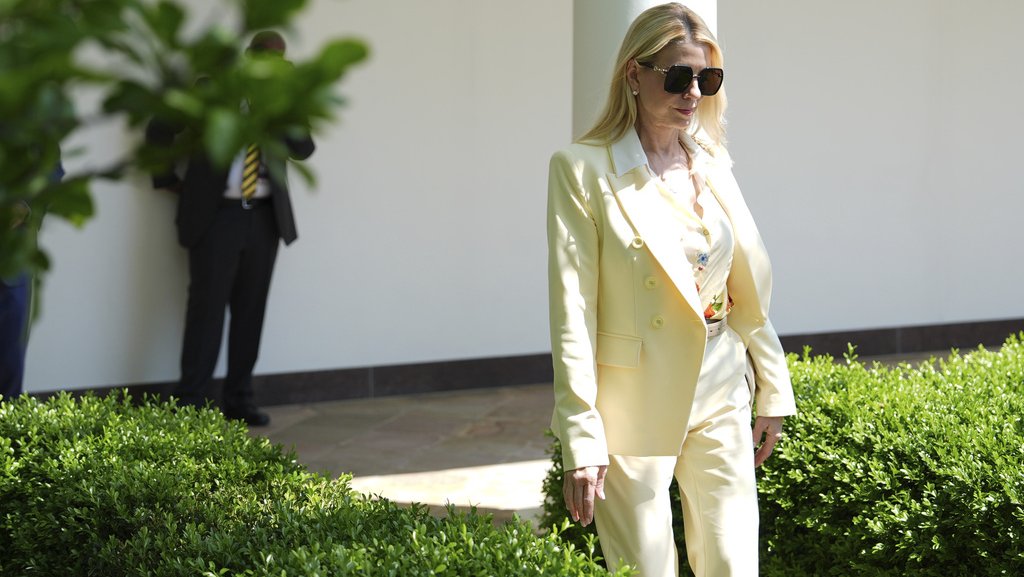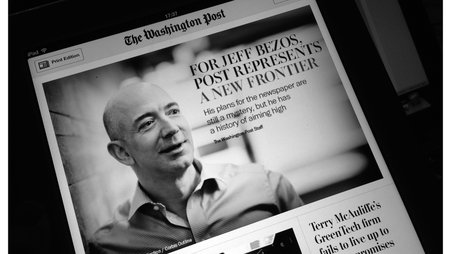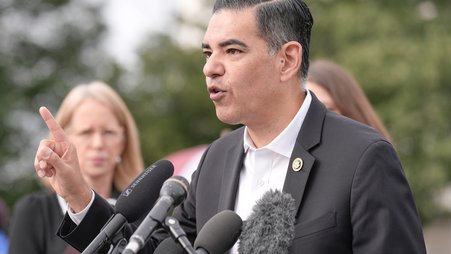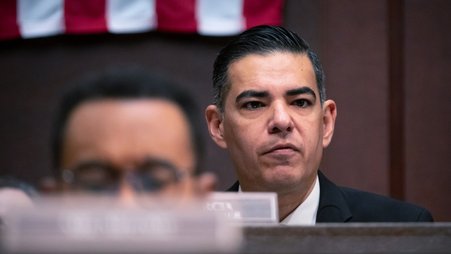The Department of Justice is trying to make it easier for President Donald Trump to lie to the American public under the guise of cracking down on leaks.
On April 25, the DOJ announced the reversal of an internal policy that protected journalists from federal prosecutors seizing their records or forcing them to name their confidential sources. In a memo announcing the change, Attorney General Pam Bondi decried leaks that “undermine President Trump’s policies, victimize government agencies, and cause harm to the American people,” calling them “illegal and wrong.” The new policy was released May 1.
But the DOJ’s priority seems less about protecting the public and more about shielding the Trump administration from scrutiny. The news stories Bondi’s memo cited to justify the change don’t undermine or victimize anyone besides dishonest officials. They reported exactly the kind of news the American people deserve to know, and the administration would rather keep hidden.
In one footnote, Bondi’s memo links to reporting by The Washington Post and The New York Times about Trump’s use of the Alien Enemies Act to deport Venezuelans that officials claim are members of the Tren de Aragua gang. Trump claims that the act provides a legal basis for the deportations because Tren de Aragua is invading the U.S. at the direction of the Venezuelan government.
The reporting, however, revealed that this isn’t true — not according to Trump’s own spy agencies, at least. Based on information from confidential sources, the Post and the Times reported that U.S. intelligence agencies have concluded that the gang is not directed by Venezuela’s government or committing crimes in the United States on its orders.
Another footnote in the memo links to a Reuters news story reporting that Dan Caldwell, an aide to Defense Secretary Pete Hegseth, had been put on leave as part of a Department of Defense leaks investigation. According to Axios, Caldwell and another official were suspended as part of an investigation into the leak of plans for a secret Pentagon briefing for Elon Musk on China. Although Trump denied the reporting as “fake news,” the embarrassing leak reportedly led him to personally ax the briefing.
The DOJ’s priority seems less about protecting the public and more about shielding the Trump administration from scrutiny.
Other recent news reports based on information from confidential sources within the government are in the same vein: embarrassing to the Trump administration, but not a threat to national security.
The Times, for instance, recently used information from confidential sources to report that Hegseth — already under scrutiny for Signalgate 1.0 — shared “detailed information about forthcoming strikes in Yemen” in a second private Signal group chat that included his wife, brother, and lawyer. Days later, The Post reported, again based on confidential sources, that Hegseth had Signal installed on a desktop computer in his Pentagon office.
These news reports raise important and legitimate questions about Hegseth’s ability to protect confidential government information. Yet while the Trump administration has steadfastly refused to hold Hegseth accountable for lapses that could result in the very kind of leaks that damage national security that Bondi condemns, it’s eager to prosecute whistleblowers. Changing the DOJ policy on legal demands to journalists is an important step in this campaign.
Bondi’s memo followed a request announced the previous day by Director of National Intelligence Tulsi Gabbard for the DOJ to investigate leaks to the press. In the past, the DOJ has jailed or threatened to jail journalists who refused to name their confidential sources, and has secretly subpoenaed their phone and email records to search for their sources, sometimes while ignoring past internal policies.
But as bad as that track record is, this isn’t just a return to the status quo as of a few years ago, before the Biden administration enacted the policy Bondi repealed. This new one will be wielded by the most anti-press administration in American history, headed by a President who has called for journalists to be jailed and raped for refusing to name sources. Platitudes about press freedom are irrelevant in an administration that flouts Supreme Court rulings and is unlikely to be constrained by the precise wording of an internal policy.
Bondi’s mischaracterizations of leaks during Trump 2.0 can’t change that whistleblowers remain essential to the ability of the press to tell Americans the truth, rather than simply what the government wants us to know. From legendary Pentagon Papers leaker Daniel Ellsberg to Edward Snowden to countless others whose names we may never know, whistleblowers have been at the heart of some of the most important news stories in American history.
Trump wants to lie to us with impunity. Journalists and whistleblowers are one of the few things standing in his way.
While the Trump administration’s change to DOJ policy makes it riskier for journalists to do their jobs and for sources to expose officials’ lies, corruption, and crimes, undoubtedly many brave reporters and whistleblowers will continue to do just that.
They should be smart, and take steps to protect their digital and physical security. For example, SecureDrop, an open source whistleblower submission system from Freedom of the Press Foundation (FPF), allows for anonymous sharing of documents and tips.
But in the face of pervasive surveillance and an administration intent on identifying them, it’s possible the DOJ could unmask even the smartest and most careful sources. In that case, it will be up to the public to loudly and forcefully fight back against the Trump administration’s attempts to prosecute sources or the journalists who refuse to give up their names.
The public will only do that if it understands what press freedom means to our democracy and how severely attacks on journalist-source confidentiality can harm accountability. And that’ll only happen if journalists and editorial boards cover attacks on press freedom regularly and aggressively. The days of journalists not wanting to “make themselves the story” need to end – journalists aren’t making themselves the story, the administration is.
Trump wants to lie to us with impunity. Journalists and whistleblowers are one of the few things standing in his way. If the administration starts throwing them in jail — as the new DOJ policy will make it easier to do — we all must stand up for them.





